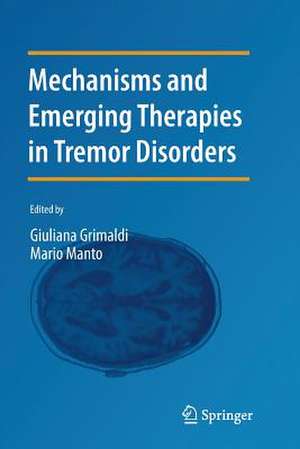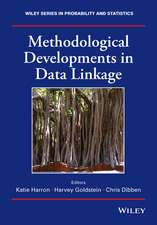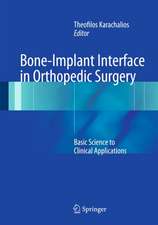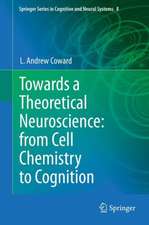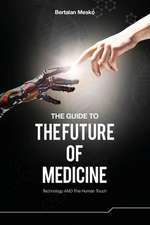Mechanisms and Emerging Therapies in Tremor Disorders: Contemporary Clinical Neuroscience
Editat de Giuliana Grimaldi, Mario Mantoen Limba Engleză Paperback – 19 sep 2014
| Toate formatele și edițiile | Preț | Express |
|---|---|---|
| Paperback (1) | 1105.95 lei 6-8 săpt. | |
| Springer – 19 sep 2014 | 1105.95 lei 6-8 săpt. | |
| Hardback (1) | 1305.84 lei 6-8 săpt. | |
| Springer International Publishing – 21 oct 2023 | 1305.84 lei 6-8 săpt. |
Din seria Contemporary Clinical Neuroscience
- 5%
 Preț: 655.43 lei
Preț: 655.43 lei - 18%
 Preț: 958.25 lei
Preț: 958.25 lei - 18%
 Preț: 1678.01 lei
Preț: 1678.01 lei - 18%
 Preț: 1403.22 lei
Preț: 1403.22 lei - 18%
 Preț: 1008.43 lei
Preț: 1008.43 lei - 5%
 Preț: 1407.87 lei
Preț: 1407.87 lei - 18%
 Preț: 1101.40 lei
Preț: 1101.40 lei - 18%
 Preț: 944.19 lei
Preț: 944.19 lei - 18%
 Preț: 1231.01 lei
Preț: 1231.01 lei - 15%
 Preț: 644.30 lei
Preț: 644.30 lei - 5%
 Preț: 1173.82 lei
Preț: 1173.82 lei - 15%
 Preț: 641.03 lei
Preț: 641.03 lei - 18%
 Preț: 1239.19 lei
Preț: 1239.19 lei - 18%
 Preț: 1229.40 lei
Preț: 1229.40 lei - 18%
 Preț: 1110.24 lei
Preț: 1110.24 lei - 18%
 Preț: 1113.39 lei
Preț: 1113.39 lei - 18%
 Preț: 1225.94 lei
Preț: 1225.94 lei - 5%
 Preț: 1438.58 lei
Preț: 1438.58 lei - 15%
 Preț: 651.84 lei
Preț: 651.84 lei - 5%
 Preț: 1103.22 lei
Preț: 1103.22 lei - 18%
 Preț: 1402.55 lei
Preț: 1402.55 lei - 5%
 Preț: 1089.48 lei
Preț: 1089.48 lei - 18%
 Preț: 1828.60 lei
Preț: 1828.60 lei - 5%
 Preț: 1103.75 lei
Preț: 1103.75 lei - 18%
 Preț: 1407.46 lei
Preț: 1407.46 lei - 18%
 Preț: 951.47 lei
Preț: 951.47 lei - 18%
 Preț: 1385.37 lei
Preț: 1385.37 lei
Preț: 1105.95 lei
Preț vechi: 1164.17 lei
-5% Nou
Puncte Express: 1659
Preț estimativ în valută:
211.65€ • 220.15$ • 174.73£
211.65€ • 220.15$ • 174.73£
Carte tipărită la comandă
Livrare economică 14-28 aprilie
Preluare comenzi: 021 569.72.76
Specificații
ISBN-13: 9781489990747
ISBN-10: 1489990747
Pagini: 508
Ilustrații: XVI, 492 p.
Dimensiuni: 155 x 235 x 27 mm
Greutate: 0.71 kg
Ediția:2013
Editura: Springer
Colecția Springer
Seria Contemporary Clinical Neuroscience
Locul publicării:New York, NY, United States
ISBN-10: 1489990747
Pagini: 508
Ilustrații: XVI, 492 p.
Dimensiuni: 155 x 235 x 27 mm
Greutate: 0.71 kg
Ediția:2013
Editura: Springer
Colecția Springer
Seria Contemporary Clinical Neuroscience
Locul publicării:New York, NY, United States
Public țintă
GraduateCuprins
Part 1: Fundamental aspects.- Definition of tremor.- Membrane mechanisms of tremor.- Rodent models of tremor.- Advances in genetics of human tremor.- Musculo-skeletal models of tremor.- Part 2: The various forms of tremor in clinical practice: presentation and mechanism.- Physiological tremor.- Rest tremor.- Postural tremors.- Isometric tremor.- Essential Tremor and Other Forms of Kinetic Tremor.- Dystonic tremor.- Orthostatic tremor.- Vocal tremor.- Update in Familial Cortical Myoclonic tremor with Epilepsy (FCMTE) .- Post-traumatic tremor and Other Post-Traumatic Movement Disorders.- Psychogenic tremor.- Tremor in childhood.- Part 3: Assessment of tremor: clinical, neurophysiological and neuroimaging aspects.- Assessment of tremor: clinical and functional scales.- Instrumentation: classical and emerging techniques.- Signal processing.- Diffusion imaging in tremor.- The metabolic networks in Parkinson's disease.- Part 4: Therapies of tremor.- Pharmacological treatments of tremor.- Thalamotomy.- Brain Stimulation.- Dopaminergic Influences on Rest and Action Tremors and Emerging Therapies for Tremor.
Recenzii
“This is an outstanding book concerning the timing mechanisms of resting, action, and hereditary aspects of dystonias, Parkinson’s disease, Multiple Sclerosis, etc. … I highly recommend this book for researchers and students at the beginning and experienced levels. Neurophysiologists, neurosurgeons, neurologists, and muscle physiologists will likely benefit from this atlas/text formats.” (Joseph J. Grenier, Amazon.com, June, 2015)
“This authoritative guide to the management and understanding of tremor disorders provides a holistic view of the multifactorial causes of tremor. … The book is written for all medical practitioners whether they are neurologists or not. … the book can easily be used by any health professional looking to bridge the clinical signs to the scientific underpinnings of cause and treatment. … it merits being available in all hospital libraries and it should be used often in helping patients with tremor disorders.” (Joseph I. Sirven, Doody’s Review Service, November, 2012)
“This authoritative guide to the management and understanding of tremor disorders provides a holistic view of the multifactorial causes of tremor. … The book is written for all medical practitioners whether they are neurologists or not. … the book can easily be used by any health professional looking to bridge the clinical signs to the scientific underpinnings of cause and treatment. … it merits being available in all hospital libraries and it should be used often in helping patients with tremor disorders.” (Joseph I. Sirven, Doody’s Review Service, November, 2012)
Textul de pe ultima copertă
Tremor is intimately linked to the numerous interactions of the central and peripheral nervous system components tuning motor control, from the cerebral cortex up to the peripheral effectors. Activities of central generators, reflex loop delays, inertia, stiffness and damping are all factors influencing features of tremor. This book discusses the pathophysiology of tremor including membrane mechanisms and rodent models, the advances in genetics and the musculoskeletal models pertinent to body oscillations. The main forms of tremor encountered during clinical practice are considered, taking into account neuroimaging aspects. The book covers recent advances in methodologies and techniques of assessment, and provides practical informations for the daily management. In addition to pharmacological treatments, neurosurgical approaches such as deep brain stimulation (DBS) and thalamotomy are discussed. Emerging techniques under development are also introduced. Future challenges are also presented.
Caracteristici
Detailed description of the various forms of tremor encountered in humans Covers recent advances in methodologies and techniques of assessment, and provides practical information for the daily management Intended for a large audience of scientists, clinicians including neurologists and neurosurgeons, internists, fellows, trainees, biologists, biomedical and electrical engineers Includes supplementary material: sn.pub/extras
Notă biografică
Giuliana Grimaldi, MD, PhD, is a neurologist. She is affiliated with Unità Spinale, ASP Palermo, Italy. She is a member of the Society for Cerebellar Research (SRC).
Mario Manto, MD, PhD is a neurologist. He is researcher at the FNRS-Belgium, Head of the Department of Neurology, CHU-Charleroi, and Professor of Neuroanatomy at U Mons. He is the founding and current editor of the international journal The Cerebellum (Springer). He is the President of the Medical Board of Euro-Ataxia. He has founded the Society for Research on the Cerebellum. He is editor of the Contemporary Clinical Neuroscience series (Springer).
